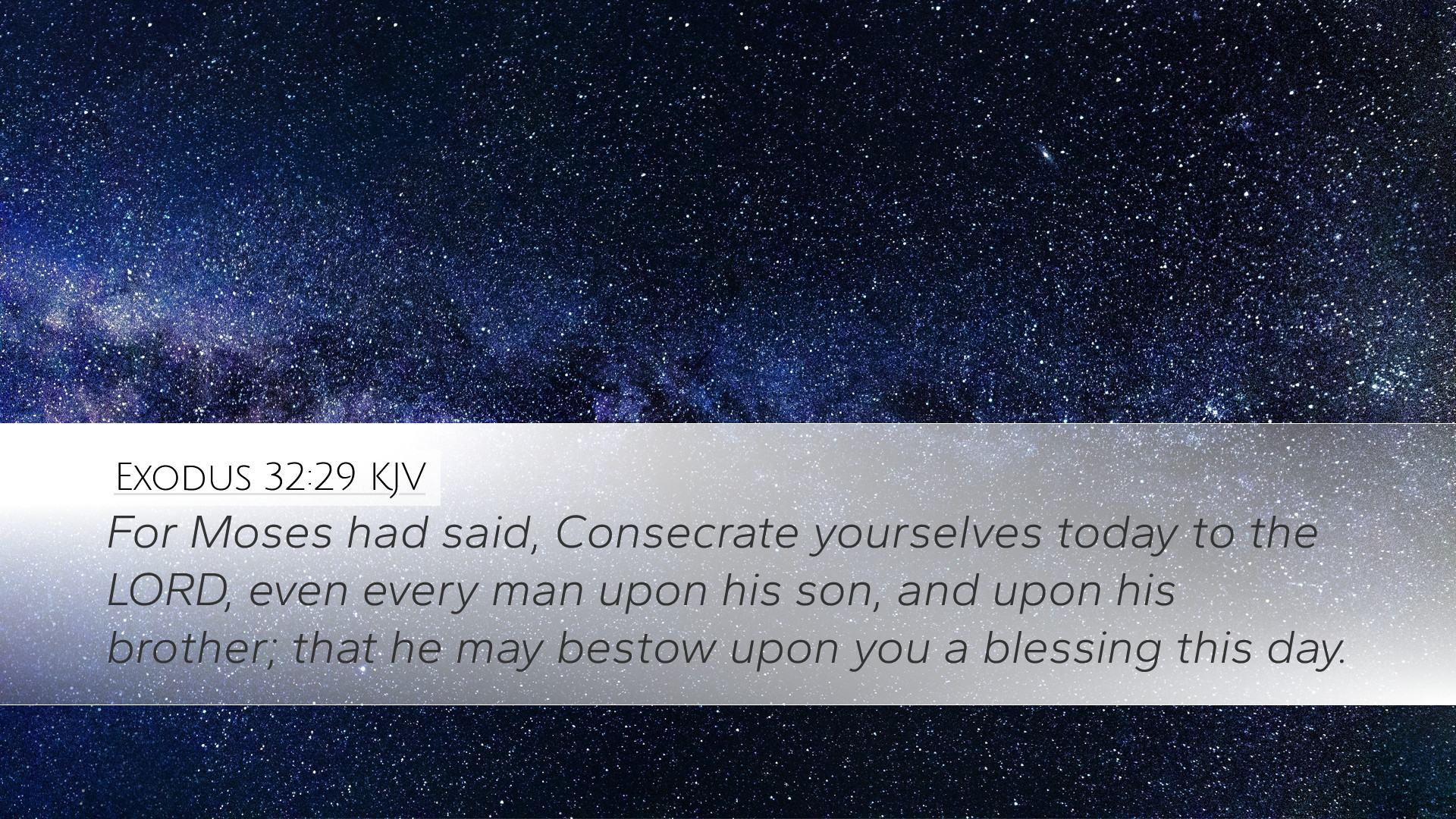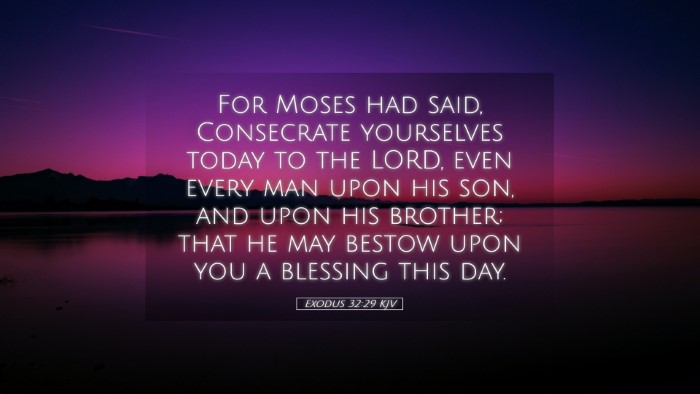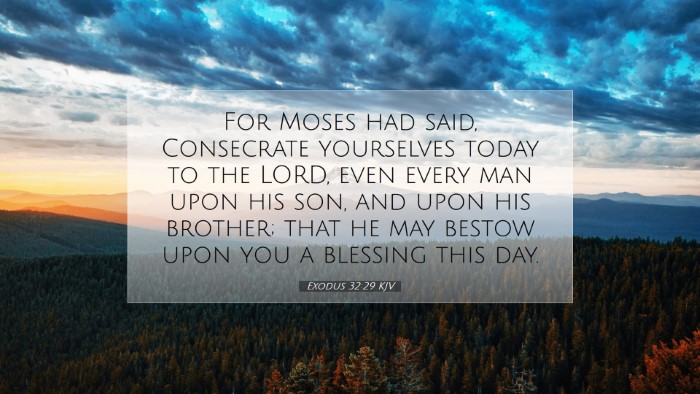Exodus 32:29 - Commentary Summary
Verse Context: Exodus 32:29 states: “For Moses had said, ‘Consecrate yourselves today to the Lord, for every man who rose up against his own father and brother, let him come to me.’ And all the sons of Levi gathered together to him.” This verse comes from a pivotal moment when the Israelites had sinned egregiously by worshipping the golden calf. Moses, as a mediator between God and Israel, calls upon the Levites to execute divine judgment against those who had sinned.
Insights from Public Domain Commentaries
Matthew Henry's Commentary
Matthew Henry emphasizes the gravity of the situation wherein Moses, upon descending from Mount Sinai, confronts the rampant idolatry of the people. He interprets the verse as a call to moral and spiritual purification. Henry points out that the Levites' decisive action signifies their commitment to God, contrasting the disobedience demonstrated by the rest of Israel. He proposes that Moses’ call to ‘consecrate yourselves’ signifies a deeper need for internal transformation, noting:
- Consecration: The act of dedicating oneself wholly to God is paramount. Henry argues that this reflects a greater requirement for holiness among God’s people.
- Levi’s Zeal: The Levites respond swiftly, underscoring their role as God’s chosen people who are set apart for His service.
- Judgment and Mercy: While there is a call for judgment, there is also an implicit call to return to God’s mercy, symbolizing hope for redemption.
Albert Barnes' Notes on the Bible
Albert Barnes provides a more analytical approach, focusing on the underlying theological significance of the Levites’ actions. Barnes stresses that the concept of consecration here is twofold: it involves both setting oneself apart for God’s service and embodying the execution of divine justice. He highlights the following points:
- Divine Justice: The execution of judgment against those who rebelled against God highlights the severity of sin and its consequences.
- Leadership of the Levites: They become leaders in this moment, marking the beginning of their distinct priestly role among the tribes of Israel.
- Historical Significance: Barnes emphasizes the importance of this event in Israel’s history, laying groundwork for the Levitical priesthood.
Adam Clarke's Commentary
Adam Clarke explores the implications of the term “consecrate” within this verse, arguing that it is a call to both physical action and spiritual renewal. Clarke delves into the Hebrew roots of the language used, offering rich insight into the cultural context of consecration and its implications for the covenant community. His insights include:
- Hebrew Meanings: Clarke emphasizes that to ‘consecrate’ implies a sacred separation and dedication to God’s purposes, linking it to the holiness required in worship.
- Community Response: The unification of the Levites in response to Moses represents a paradigm for active faith and immediate response to God’s call.
- Sacrificial Leadership: Clarke suggests that true leaders are those willing to make sacrifices for the purification and sanctification of their community.
Theological Implications
This verse invites theological reflection on several key themes:
- Holiness and Consecration: Exodus 32:29 offers a paradigm for understanding the nature of holiness as not merely a state, but a actionable commitment to God.
- Judgment and Accountability: The Levites' willingness to engage in this sacrificial judgment reflects a theology where accountability to God’s standards is paramount.
- Communal Responsibility: The collective action of the Levites demonstrates that faith is not merely an individual pursuit, but a communal engagement that upholds the standards of God's covenant.
Practical Applications
For pastors, theologians, and students, Exodus 32:29 serves as a powerful reminder of the implications of consecration in contemporary faith communities:
- Call to Holiness: Leaders are called to cultivate holiness within their congregations, encouraging active engagement in living out God’s commands.
- Responding to Sin: There is a need for a communal response to sin, where leaders take decisive action that reflects God’s justice and mercy.
- Spirit of Unity: The unity displayed by the Levites acts as an example for modern believers to stand together in faith and devotion.
Conclusion
Exodus 32:29 stands as a profound call to the people of God to embody both the seriousness of holiness and the urgent response to moral failure within the community. Whether for personal edification or pastoral instruction, the insights gleaned from classical commentaries offer rich guidance that can inform and transform the practice of faith today.


